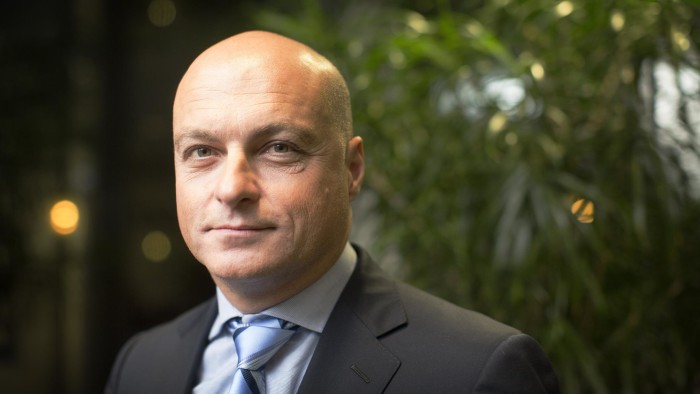A mission to win over women to the MBA

Simply sign up to the Business education myFT Digest -- delivered directly to your inbox.
Would the financial crisis have happened if more women were represented at senior level in finance and business?
This question has vexed policy makers and prompted countries to roll out gender diversity programmes to boost female participation on company boards. But getting women to take top jobs remains challenging; many companies say there is a dearth of suitably qualified and experienced candidates for these posts.
Part of the problem lies in business education, where just a third of MBA students in the top 100 FT Global MBA programmes 2014 are women. Alex Frino, dean of Macquarie Graduate School of Management in Sydney, is on a mission to find out why and to establish his school as one of the first that consistently has equal numbers of men and women on its MBA.
Is the gender divide a factor at other education levels?
Our experience at MBA level is in stark contrast to [that] at undergraduate and masters level for business studies where women outnumber men at Macquarie. It is only when you get to MBAs, where you typically have an experience requirement, where women essentially evaporate.
Why do MBAs not appeal to women?
For women in the 25-40 years age group family commitments clearly become pretty onerous when they have children. There are greater financial commitments on the household and MBAs are expensive. As many women have already left the workforce, they do not benefit from tax deductibility of their course fees.
Flexibility is a big issue. Women who have children or are on maternity leave find it difficult to get out to a classroom week in, week out.
Perceptions of future prospects also play a role. Women in senior leadership positions in business are pretty scarce. So women must look at their career prospects post-MBA and decide that well, what is the point? I won’t be able to get a job anyway.
Is the business culture in Australia too macho?
Without a doubt but it is not just in Australia, it is global issue. It is a function of the number of men you have in senior leadership positions, which no doubt discourages women from entering senior leadership positions. This in turn, has flow-on effects.
Figures released by Australia’s Workplace Gender Equality Agency last month showed that last year all the biggest investment banks had less than 20 per cent of women filling their senior management roles. Just 17 per cent of board positions on public companies in Australia are held by women.
What is Macquarie doing to boost female participation?
We are conducting focus group research to identify the problems women face and come up with a programme that attacks these. Greater flexibility in our courses, financial support and a crèche/childcare facility are all options. We can determine the right approach and the best mix of these, and other, potential solutions through our research.
Where do you stand on gender quotas?
Businesses haven’t been able to respond to the implicit quotas set by the Australian Stock Exchange as there is a lack of talent at very senior levels. Until you solve the problem of a dearth of women at senior management levels you can’t meet quotas on board membership.
Why make business schools more gender diverse?
It is clearly a business opportunity if I can bring this cohort of women into the marketplace and make money for the school. But it is an opportunity to enable women to use their talent and provide the country with access to skills. We have a shortage of leadership capital in the country and we have a group of women who could satisfy that shortage. They just aren’t being encouraged and facilitated to enter into MBA programmes.
Comments